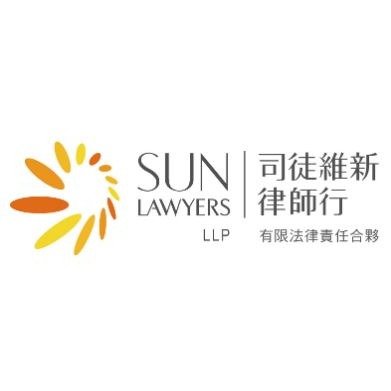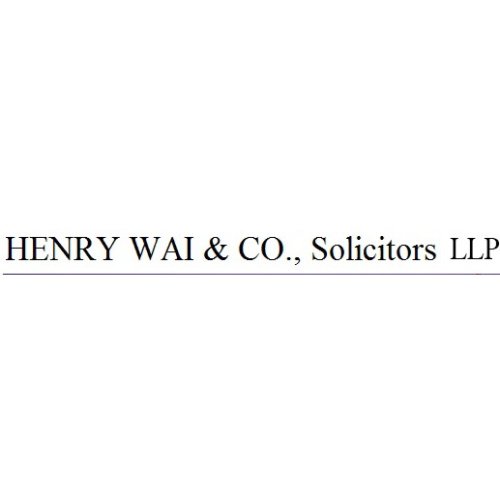Best Legal Document Lawyers in Admiralty
Share your needs with us, get contacted by law firms.
Free. Takes 2 min.
List of the best lawyers in Admiralty, Hong Kong
About Legal Document Law in Admiralty, Hong Kong
Legal Document Law in Admiralty, Hong Kong involves the rules and regulations associated with creating, understanding, and using various forms of legal documents. Legal documents can encompass contracts, agreements, wills, trusts, power of attorney, legal letters, affidavits, and all other written instruments that define, confirm, or convey legal rights, duties, and obligations. It’s essential to adhere to the specifics of local laws when creating or engaging with such documents. Legal inaccuracies could render a document invalid, so professional legal help is often required.
Why You May Need a Lawyer
Creating or interpreting legal documents is a complex process. Making an error while crafting these documents can lead to significant consequences. A lawyer specializing in legal document law can ensure that everything is accurate, legal, and in your best interest. If you are entering into a contract or agreement, inheriting property, creating a will, dealing with legal disputes, or you're involved in any situation needing a legal document, you will require a lawyer's expertise. Lawyers can also assist in understanding the intricacies of various legal documents.
Local Laws Overview
The Admiralty area in Hong Kong adheres to a hybrid legal system, a mix of the English common law and the Basic Law regulations of the People's Republic of China. Depending on the type of legal document involved, the lawful requirements may vary. For instance, contract law requires clear consent of both parties, property law necessitates detailed registration of assets, and specific standards dictate the formation of wills or trusts. For business contracts or agreements, concepts such as privity of contract, freedom of contract, contract subject matters legality are considered fundamental.
Frequently Asked Questions
What makes a legal document valid?
A legal document is considered valid if it has the necessary elements like identifiable parties, clear agreement terms, legible definitions, the free will of the parties, and lawful subject matter. Some documents also require witness signatures or need to be notarized to be legally effective.
Can a lawyer help explain legal documents to me?
Yes, lawyers are experts in understanding and explaining legal terms and conditions. If you have complex legal documents that you need help understanding, a lawyer can help.
Is a written contract always necessary?
While oral contracts can be legal, a written contract is strongly recommended as it provides clear evidence of terms agreed upon by the parties.
Do I need a lawyer to draft a will?
Although not required, it is recommended to have a lawyer when drafting a will. It ensures that the document adheres to all legal requirements and accurately reflects your wishes.
Do all legal documents need to be in English in Hong Kong?
While English is one of the official languages in Hong Kong, legal documents can also be in Chinese. However, the widespread use of English in legal documents makes it the preferred choice in professional settings.
Additional Resources
The Hong Kong Department of Justice and the Hong Kong Legal Aid Department are excellent resources for understanding legal documentation. The Law Society of Hong Kong and the Hong Kong Bar Association also provide helpful resources and legal support services.
Next Steps
If you require legal assistance with a document, your first step should be to seek counsel from a lawyer experienced in legal document law. They can provide invaluable guidance to ensure your interests are protected and all necessary legal protocols are maintained.
Lawzana helps you find the best lawyers and law firms in Admiralty through a curated and pre-screened list of qualified legal professionals. Our platform offers rankings and detailed profiles of attorneys and law firms, allowing you to compare based on practice areas, including Legal Document, experience, and client feedback.
Each profile includes a description of the firm's areas of practice, client reviews, team members and partners, year of establishment, spoken languages, office locations, contact information, social media presence, and any published articles or resources. Most firms on our platform speak English and are experienced in both local and international legal matters.
Get a quote from top-rated law firms in Admiralty, Hong Kong — quickly, securely, and without unnecessary hassle.
Disclaimer:
The information provided on this page is for general informational purposes only and does not constitute legal advice. While we strive to ensure the accuracy and relevance of the content, legal information may change over time, and interpretations of the law can vary. You should always consult with a qualified legal professional for advice specific to your situation.
We disclaim all liability for actions taken or not taken based on the content of this page. If you believe any information is incorrect or outdated, please contact us, and we will review and update it where appropriate.















